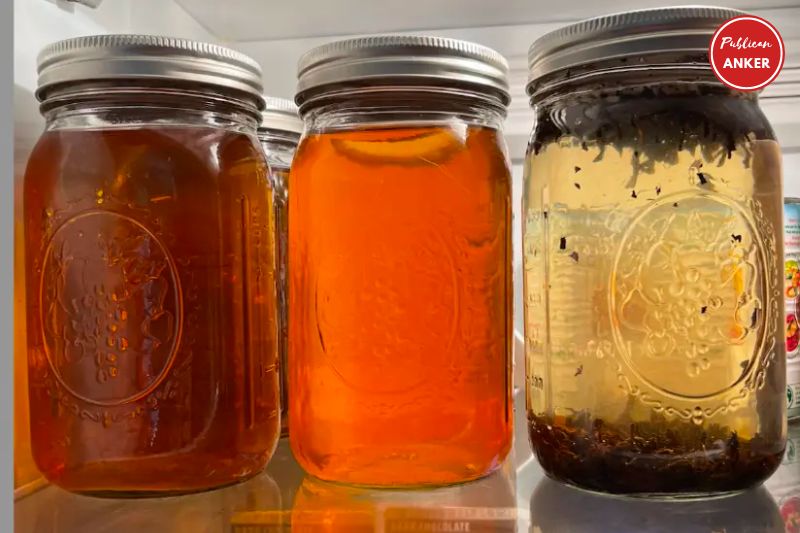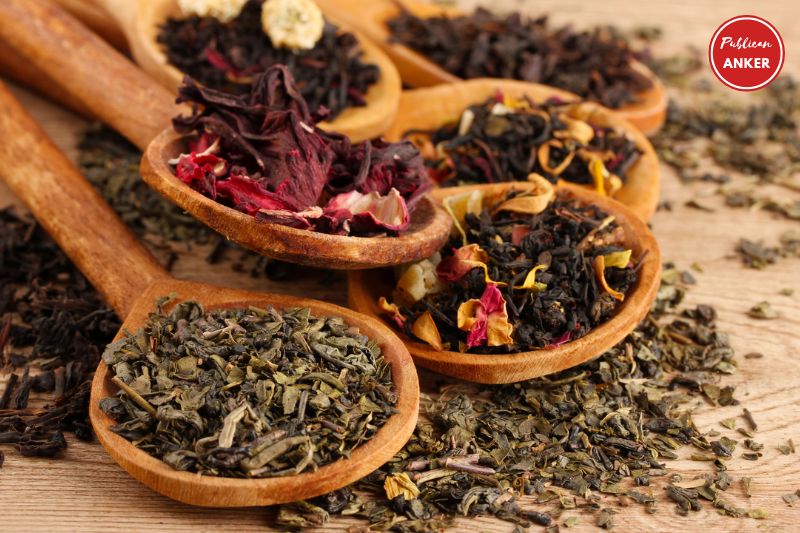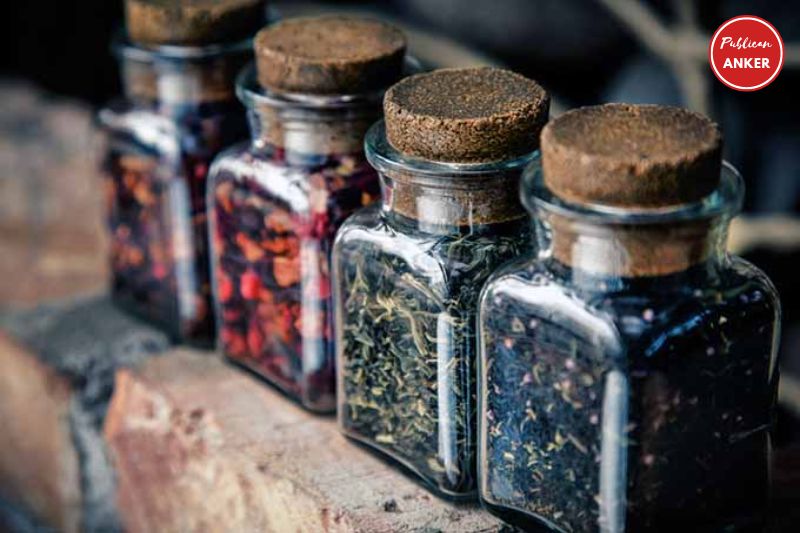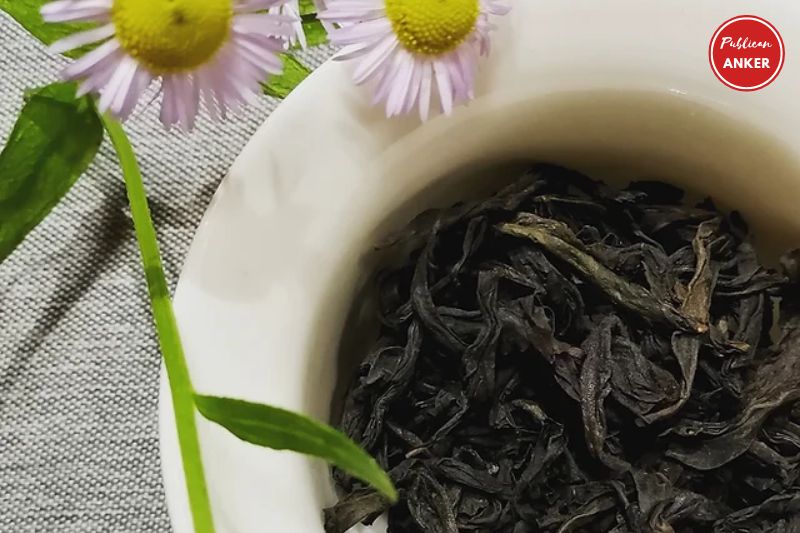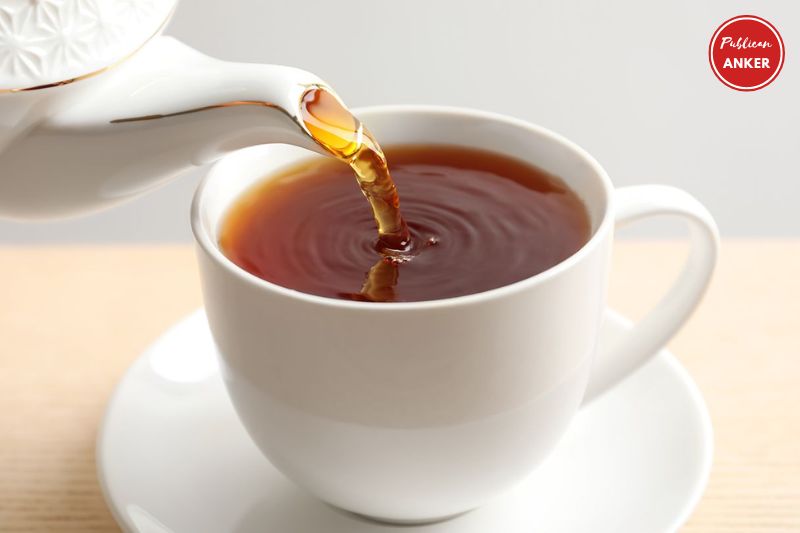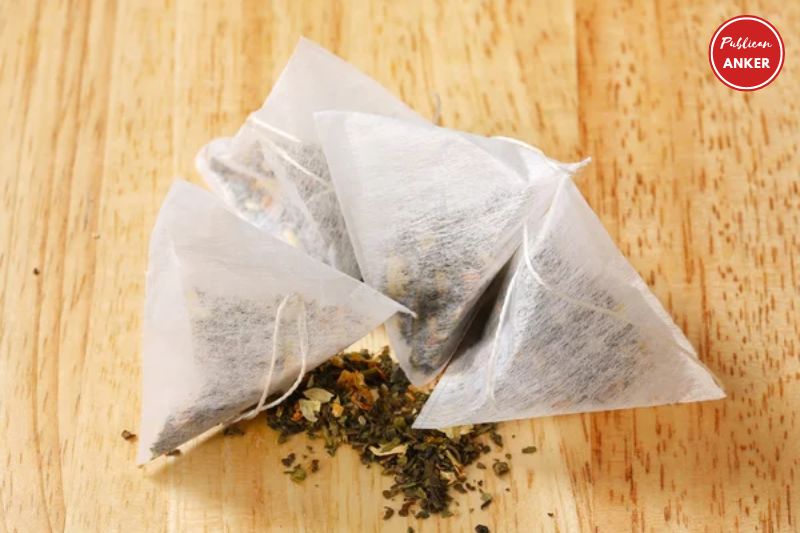Tea lovers often have to remind themselves How Long Does Tea Last In Fridge or fridge after brewing. Though many tea bags are stamped with expiration dates, some tea enthusiasts have found that leaves can stay fresh for one year, while leaves of green tea leaves can last up to three years.
Most people have a sweet spot that they find is the best for storage. Remember that when you keep it in the fridge it is going to change a lot of the flavor in a lot of ways, so it’s hard to give a hard and fast answer.
Does Tea Go Bad?
Yes, tea can go bad over time. While tea does not spoil in the same way as perishable foods like meat or dairy products, it can lose its flavor and aroma as it ages.
This is because tea leaves contain natural oils and volatile compounds that can degrade over time, particularly if they are exposed to heat, light, moisture, or air.
How Long Does Tea Last In Fridge
Here are the general guidelines for how long different types of tea last in various storage conditions:
Brewed tea
If you store brewed tea in the fridge in a sealed container, it can last for up to 2-3 days. After that, it may start to lose its flavor and aroma. However, it’s best to drink it as soon as possible for the freshest taste.
Tea bags
If you brew a cup of tea using a tea bag and don’t finish it, you can store it in the fridge for up to 24 hours. However, the longer you store it, the more the flavor and aroma will deteriorate.
Tea leaves
Once the tea leaves are opened, they should be stored in an airtight container and used within 6-12 months for the best flavor and aroma.
It’s not recommended to store brewed tea made from loose tea leaves in the fridge or freezer, as it can affect the quality and taste of the tea.
Freezing tea
While tea can be frozen, it’s not recommended as it can affect the quality and taste of the tea. If you do choose to freeze tea, it’s best to freeze it in an airtight container for up to 6 months. When thawing, allow it to come to room temperature before brewing.
The Shelf Life Of Tea
Tea Leaves
- Green Tea Leaves: typically have a shelf life of 6-12 months if stored properly. To maximize the shelf life, keep the leaves in an airtight container away from light, heat, and moisture.
- Black Tea Leaves: can last for up to 2-3 years if stored properly. Store the leaves in an airtight container away from light, heat, and moisture. Avoid storing black tea leaves in the refrigerator or freezer, as the moisture can cause the leaves to spoil.
- Oolong Tea Leaves: can last for up to 2 years if stored properly. Store the leaves in an airtight container away from light, heat, and moisture.
- White Tea Leaves: White tea leaves can last for up to 1-2 years if stored properly. Store the leaves in an airtight container away from light, heat, and moisture.
- Pu’erh Tea Leaves: can last for many years, and some high-quality varieties can even improve with age. Store the leaves in a cool, dark, and dry place with good air circulation, and avoid storing them near any strong odors. It is also common to store pu’erh tea leaves in a porous container, such as a clay pot, to allow the leaves to breathe and develop their flavor over time.
Brewed Tea
- At Room Temperature: Brewed tea that is left at room temperature can be consumed within 8 hours of brewing, after which it should be discarded to avoid the growth of bacteria.
- In The Fridge: Brewed tea can be stored in the fridge for up to 3-4 days. However, its flavor and quality will deteriorate over time. To store brewed tea in the fridge, transfer it to a clean, airtight container after it has cooled down to room temperature.
- In The Freezer: Brewed tea can be frozen for up to 6 months, but its flavor and quality may be affected. To freeze brewed tea, allow it to cool to room temperature and then transfer it to a freezer-safe container. Leave some space at the top of the container to allow for expansion when the liquid freezes.
Tea Bags
Tea bags generally have a shelf life of 6-12 months, depending on the type of tea and how they are stored. To maximize their shelf life, store tea bags in an airtight container away from light, heat, and moisture.
How To Store Tea Properly
Tea Leaves
Keep Them At Room Temperature
Tea leaves should be stored at room temperature, ideally between 20-25°C (68-77°F). Avoid storing them in areas that are too hot or cold, as extreme temperatures can affect the quality and flavor of the tea.
Avoid Humid Places
Tea leaves should also be kept away from moisture or humidity, which can cause the leaves to absorb moisture and lose their flavor. Avoid storing tea leaves in the kitchen near the stove or sink, where there may be more moisture in the air.
Store In Airtight Containers
To protect tea leaves from moisture, it’s important to store them in airtight containers. Choose an opaque container, such as a tin or ceramic jar, to keep out light, which can also affect the flavor of the tea. Make sure the container is completely sealed and has a tight-fitting lid.
Brewed Tea
Storing brewed tea properly is essential to maintain its flavor and freshness, and prevent bacterial growth. Here are some guidelines for the proper storage of brewed tea:
Cool the tea
Allow the brewed tea to cool down to room temperature. Storing hot tea may cause condensation, which can affect the taste and freshness of the tea.
Keep your tea covered
Transfer the brewed tea into an airtight container or a glass jar with a tight-fitting lid. This will help to protect the tea from contaminants and prevent the absorption of odors from the surrounding environment.
Avoid adding sugar and fruits
If you plan to store the brewed tea, it’s best not to add any sugar, fruits, or other flavorings, as these can encourage bacterial growth and spoil the tea. Instead, add these elements when you’re ready to serve the tea.
Refrigerate the tea
Place the covered container in the refrigerator to keep the tea fresh. Brewed tea can be stored in the fridge for up to 3-5 days. Be cautious not to store it for too long, as the flavor and quality may degrade over time.
Use a dark container or store in a dark place
Exposure to light can affect the taste and quality of the tea. If possible, use a dark container or store the container in a dark place, such as a cabinet or pantry, to protect the tea from light exposure.
Signs Of Ruined Tea
Tea Leaves/Tea Bags
Tea leaves or tea bags can go bad over time or when exposed to certain conditions. Here are some signs that your tea leaves or tea bags may have gone bad:
- Stale or musty smell: Tea leaves that have gone bad will have a stale or musty odor. This is because the essential oils in the tea leaves have evaporated or become rancid.
- Dull color: Fresh tea leaves have a bright and vibrant color, but old or bad tea leaves will have a dull or faded color.
- Brittle texture: Old tea leaves or tea bags can become dry and brittle, which makes them crumble easily when touched.
- Mold or mildew: If you notice any signs of mold or mildew on your tea leaves or tea bags, it’s a clear indication that they are no longer safe to consume.
- Bitter taste: If your tea tastes bitter or unpleasant, it could be a sign that the leaves or bags have gone bad. This is because the tannins in the tea leaves can break down over time, causing a bitter taste.
Brewed Tea
Brewed tea can also go bad if it’s left at room temperature for too long or stored improperly. Here are some signs that your brewed tea may have gone bad:
- Sour or off smell: If your brewed tea smells sour or off, it’s a clear indication that it has gone bad. This can happen when bacteria grow in the tea due to improper storage.
- Cloudy appearance: Freshly brewed tea should be clear and transparent. If your tea appears cloudy, it’s likely that bacteria or mold have started to grow in it.
- Mold or floating particles: If you notice any signs of mold or floating particles in your brewed tea, it’s no longer safe to consume.
- Bitter or metallic taste: If your brewed tea tastes bitter, metallic, or unpleasant, it could be a sign that it has gone bad. This can happen when the tannins in the tea break down over time.
- Flat or stale taste: Freshly brewed tea has a lively and aromatic taste. If your tea tastes flat or stale, it’s likely that it has gone bad.
To avoid brewed tea from going bad, it’s best to store it in an airtight container in the refrigerator and consume it within 24 hours. If you’re unsure about the freshness of your brewed tea, it’s better to err on the side of caution and discard it.
What Happens If You Drink Bad Tea
Drinking bad tea can cause a range of health problems, including:
- Upset stomach: Consuming bad tea can cause an upset stomach, with symptoms such as nausea, vomiting, and diarrhea.
- Food poisoning: If tea is contaminated with harmful bacteria or toxins, it can lead to food poisoning, which can cause more severe symptoms like fever, chills, and dehydration.
- Allergic reactions: If you are allergic to mold or certain types of tea, drinking bad tea can cause an allergic reaction, with symptoms such as itching, hives, and difficulty breathing.
- Headaches and dizziness: Drinking bad tea can also cause headaches, dizziness, and lightheadedness, especially if it’s contaminated with mold or other harmful substances.
Relevant Posts:
- How Long Does Kimchi Last In The Fridge After Opening
- How Long Does Breast Milk Last In The Fridge
- How Long Does Butter Last In Fridge
- How Long Is Chili Good In The Refrigerator
- How Long Does Coffee Last In The Fridge
- How Long Does Broccoli Last In The Fridge
- How Long Does Lettuce Last In The Fridge
- How Long Does Zucchini Last In Fridge
FAQs
How Long Does Iced Tea Last In The Fridge?
Generally, homemade iced tea can last for 3-5 days in the fridge if stored properly in an airtight container.
How Long Does Brewed Green Tea Last In The Fridge?
Green tea can last for up to 5 days in the fridge if stored in a clean and airtight container.
Can You Put Hot Tea In The Fridge?
Yes, you can put hot tea in the fridge, but it is recommended to let it cool to room temperature first to avoid any temperature shock that may crack the glass or ceramic container.
Can You Drink Expired Iced Tea?
It’s not recommended to drink expired iced tea as it can cause food poisoning or make you sick.
How Can You Tell If Iced Tea Has Gone Bad?
The signs of bad iced tea include a sour or unpleasant smell, a cloudy appearance, and a sour or off taste.
Can You Leave Tea Out Overnight To Make Iced Tea?
It’s not recommended to leave tea out overnight as it can cause bacteria growth and make the tea unsafe to drink.
Does Iced Tea Need To Be Refrigerated?
Yes, iced tea should be refrigerated to prevent bacteria growth and to keep it fresh for longer.
Can You Freeze Brewed Tea?
Yes, you can freeze brewed tea to make tea cubes or use it in recipes, but it may affect the taste and quality of the tea.
How Long Does Homemade Sweet Tea Last In The Fridge?
Homemade sweet tea can last for up to a week in the fridge, as long as it’s stored in a clean, airtight container.
Conclusion
Perhaps you’re creating a huge batch of iced tea to appreciate for many days, or you inadvertently brewed hotter tea than you planned.
Now you understand just how long brewed stays from the refrigerator, freezer, and in-room temperature and just how long iced tea could be safely stowed in the refrigerator.
Hopefully, this knowledge will also allow you to prepare your tea accordingly in the long run.
Bear in mind, if you would like your plain brewed to survive longer, keep it in the refrigerator where it can stay safe to consume for up to five times as long as it is stored in an airtight container.
If you are making iced, then it also ought to be set in an airtight container. Furthermore, avoid adding sugar least until you are ready to function, because this may lead to fermentation.


